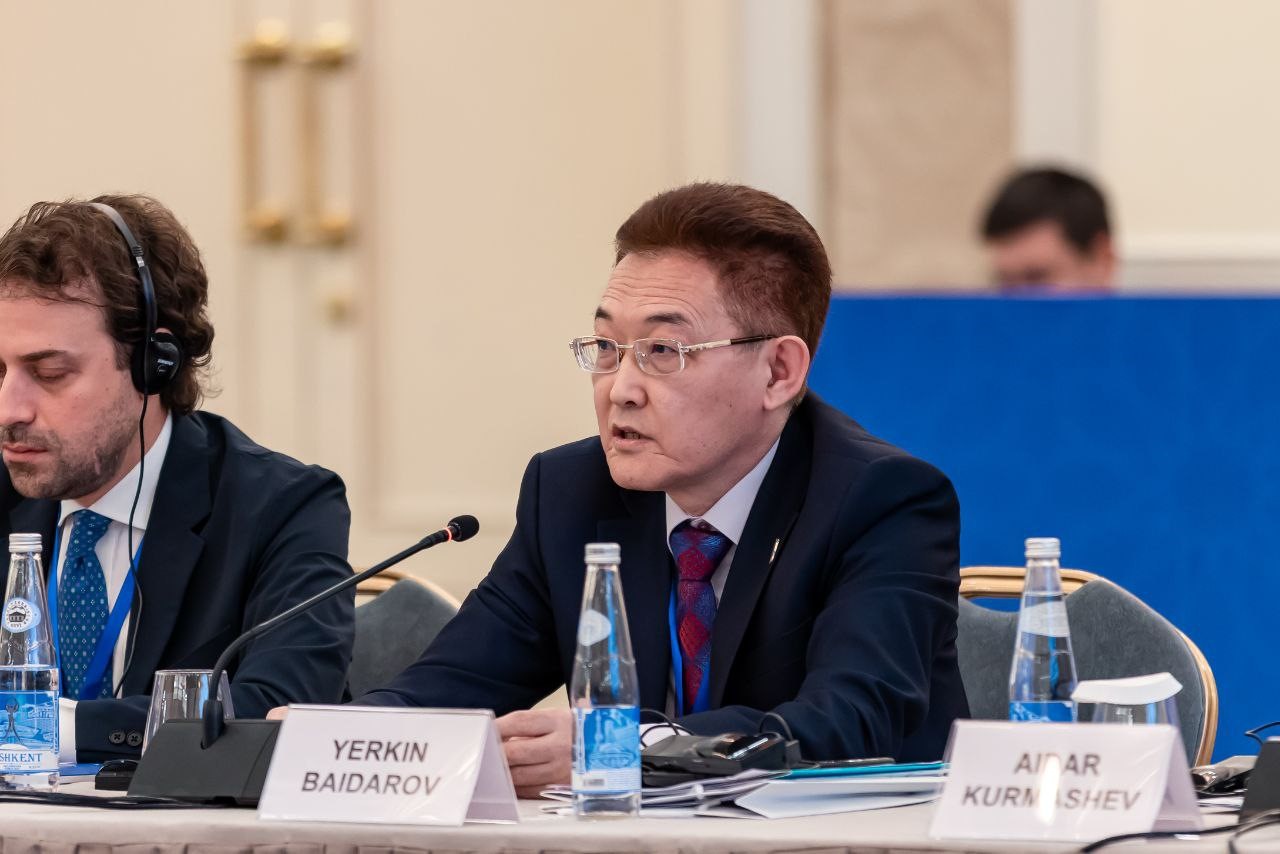Yerkin Baidarov: Regional identity as the basis for Central Asian integration

Yerkin Baidarov, a researcher at the R.B. Suleimenov Institute of Oriental Studies of the Committee of Science under the Ministry of Education and Science of the Republic of Kazakhstan, shared his views while speaking on August 15 at the scientific-practical conference on regional identity within the framework of the Central Asian Expert Forum (CAEF) in Tashkent.
In his opinion, the awareness of regional identity is a key condition for the successful integration of the Central Asian countries. Without its formation, closer ties among the states of the region remain impossible. In this context, the professor noted, the holding of a forum dedicated to issues of identity acquires particular significance.
He emphasized that the consolidation of countries is particularly relevant in the context of escalating geopolitical tensions and ideological confrontation. Amid the fragmentation of the global economy, growing conflicts, and environmental challenges, regions themselves are becoming essential actors in international politics.
According to Baidarov, competitiveness, resilience to threats, and a worthy place in the emerging world order are possible only for cohesive regions. Their foundation must be a strong regional identity. According to American political scientist T. Magstadt, identity becomes a central element in shaping a region as a unified socio-political and institutional space.
At the same time, the researcher stressed that identity is not innate but subject to conscious formation. Citing the works of French historian V. Petit, he pointed out that regional identity is essentially a construct based not on natural factors but on shared historical experience and territorial continuity.
“Central Asia must shape its identity independently, since in the past it was often imposed from outside”, Baidarov believes.
The expert noted that the region possesses everything necessary for this: its rich historical and cultural heritage serves as a unifying factor for the countries. He assigns a special role to the civilizational component – many modern integration unions are built on a common cultural foundation, which directly influences the effectiveness of their functioning.
According to the scholar, Central Asia is united by a unique civilizational basis – a synthesis of nomadic and sedentary cultures, the Islamic heritage, Turkic and Iranian-Tajik traditions, as well as a shared Soviet past. This historical and cultural symbiosis promotes rapprochement rather than division.
In addition, shared challenges, such as environmental and climate issues, may serve as an additional factor in shaping an everyday regional consciousness.
In conclusion, Yerkin Baidarov emphasized that the formation of regional identity is an essential step toward deepening integration in Central Asia. Cultural and historical ties, linguistic and religious similarities, awareness of everyday challenges, and the aspiration for joint development create a solid foundation for unlocking the region’s potential and strengthening its position on the world stage. In his view, regional identity contributes to enhancing mutual understanding and achieving more effective solutions to shared tasks.
It should be noted that the CAEF was organized by ISRS in partnership with the UN Regional Centre for Preventive Diplomacy for Central Asia, the EU and OSCE offices, and the Konrad Adenauer Foundation in Uzbekistan. The forum brought together representatives of strategic institutions, research centers, and academic circles from the countries of the region. For the first time, leading experts from the EU, ASEAN, and the Nordic Council, as well as researchers from Russia, the United States, the United Kingdom, Germany, Switzerland, Azerbaijan, and other countries, were invited to the expert dialogue within the CAEF framework.
Next

On 19 August, in Tashkent, during the High-Level Meeting between Uzbekistan, Azerbaijan, and European partners on the theme “Cooperation for Common Development,” former SCO Secretary-General Rashid Alimov highlighted the crucial role of Uzbekistan in shaping and strengthening Central Asia’s climate agenda.
20.08.2025





